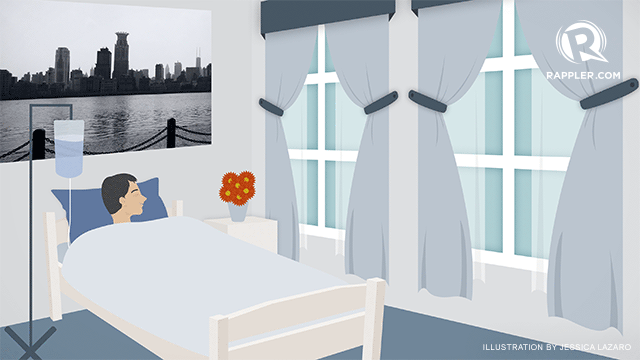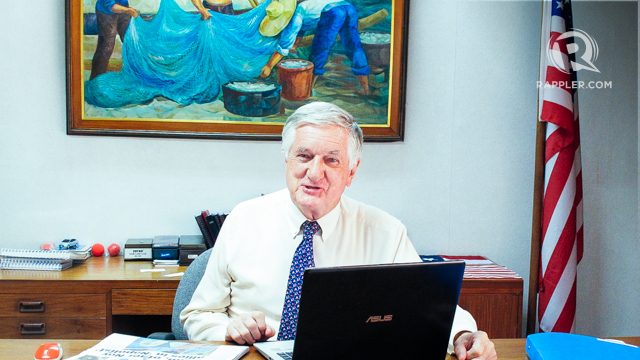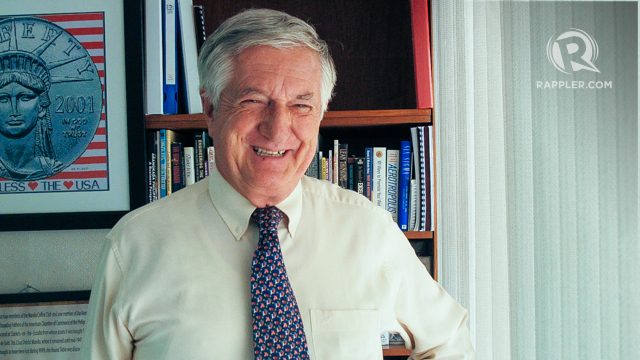SUMMARY
This is AI generated summarization, which may have errors. For context, always refer to the full article.

He ended up paying the price. At his age, premiums are already expensive.
But at least he didn’t have to shell out millions of pesos in medical bills when he went through a recent surgery ordeal.
Three years ago, the avid golfer woke up with intense pain in his right shoulder. It took 3 years, 7 operations, and hundreds of hours in physiotherapy before he could start moving it again without pain.

“For the first two years, I couldn’t put my shirt on, couldn’t undress or dress myself. I couldn’t sleep without sleeping tablets and heavy painkillers,” he recalled. Even reaching for his pockets was an ordeal.
It was very stressful not just physically, but emotionally.
“Mentally and morally I felt so depressed, so down,” he said. “I had pain, and I had the stress of worrying if I was going to be covered. But thank God, everything was.”
Brian’s insurance policy with Blue Cross ended up covering not just the cost of operations, but also doctor visits, hospital stays, and therapy sessions. Though he will not disclose the actual figure, Brian said that it amounted to millions of pesos.
“I realized I was lucky,” Brian said. But if he had gotten sick before getting a medical plan, or if his surgeries happened much earlier, he might still be paying for his operations today. Now, he wants other, younger people to start thinking about protecting their health – before it’s too late.
‘I was stupid’
“It just always seemed so far away, when I was young,” Brian said. Brian moved to the Philippines to join a family company, Asian Tigers/Lane Moving, that helps expats and their families relocate with ease. His work entailed a lot of traveling, especially in his 30s and 40s. He would be gone for weeks or even months, leaving his wife and two children at home.
Brian would stay in countries like Nigeria and Ghana, where malaria was considered a very real death risk. “Now I realize how stupid, how foolish it was to expose yourself, your family, and your friends to huge risks,” he said.
Brian got his wake-up call after a close friend got cancer. He saw how the sickness drained all of his friend’s resources, including those he had set aside for his family.
If everyone can predict exactly when they’re going to get sick, then no one would need insurance. “But you can’t tell the future and insurance can take care of the risk,” Brian said. At his advanced age, other illnesses or accidents will be more likely to happen. And if they do, he’ll be ready.
Start young
Now that Brian has experienced the benefit of having medical protection, he’s very vocal about his views. “I’ve said to people, if you don’t have coverage, you really are stupid. And I don’t care how old or young you are because it’s not if something’s going to happen – it’s when,” he said.

He agreed that spending on a premium medical plan may seem like a loss if one will never use it. “But [it’s] the best way I could think of to waste money… not to need coverage. To have it is to have mental peace of mind that you and your loved ones are safe.”
He also advised against simply signing up for what’s the most affordable or most convenient. “I’d rather pay a little bit more and get a little bit more,” he said. “If you go to someone who is only doing this [to sell], then they won’t understand the issues that should help you choose the right policy.”
His advice to 20-somethings: get insurance while they’re young and policies are cheaper. “You guys must plan for your financial future because you retire at 60 or 65 and there’s no money there. You stop working, there’s not much money,” he said.
‘Life is a gift’
Looking back on his experience, Brian said: “Compared to someone who has cancer or AIDS, or was in a pretty bad car crash or something, this is nothing. But it did affect my life very traumatically and dramatically. It changes everything.”
Brian values his health much better now. “I’d like to live much longer so I try to eat healthy, and engage in some form of regular physical activity.”
He sums it up this way: “You don’t realize what your health is until you don’t have it. It is a gift, you should cherish it.” – Rappler.com
Add a comment
How does this make you feel?
There are no comments yet. Add your comment to start the conversation.